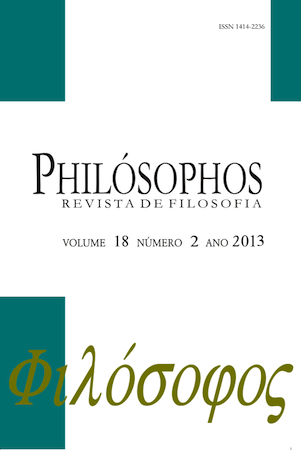CONTRIBUIÇÕES PARA UM DEBATE SOBRE A JUSTIÇA A PARTIR DA FILOSOFIA DE FRIEDRICH NIETZSCHE
DOI:
https://doi.org/10.5216/phi.v18i2.25182Palavras-chave:
Ressentimento, Justiça, Vingança, Indulgência, ApartheidResumo
O objetivo deste artigo é fornecer alguns elementos que permitam ampliar os debates sobre certos desafios atuais da justiça e da política tendo como referência o tema do ressentimento na filosofia de Friedrich Nietzsche. Assim, partindo da tese de que a justiça não corresponde à sede de vingança, mas opera um movimento oposto a ela, propomos uma reflexão que culmina na análise de alguns casos-limite de nossa história recente. O primeiro desses casos é o das políticas totalitárias, marcadas pelo ressentimento e verificadas na primeira metade do século XX na Europa. O segundo corresponde à associação entre indulgência e verdade que selou o fim do regime da Apartheid na África do Sul. Conforme nossa hipótese de trabalho, diferentemente da política, ou concepção de justiça, marcada pela sede de vingança do primeiro caso, o que se tem no segundo exemplifica um modo de se relacionar com as vivências passadas que não exige que eles sejam apagados ou ressentidos, mas assimilados num projeto de construção do instante presente.Downloads
Downloads
Publicado
Como Citar
Edição
Seção
Licença
Autores que publicam nesta revista concordam com os seguintes termos:
- Autores mantêm os direitos autorais e concedem à revista o direito de primeira publicação, sendo o trabalho simultaneamente licenciado sob a Creative Commons Attribution License o que permite o compartilhamento do trabalho com reconhecimento da autoria do trabalho e publicação inicial nesta revista.
- Autores têm autorização para assumir contratos adicionais separadamente, para distribuição não-exclusiva da versão do trabalho publicada nesta revista (ex.: publicar em repositório institucional ou como capítulo de livro), com reconhecimento de autoria e publicação inicial nesta revista.















